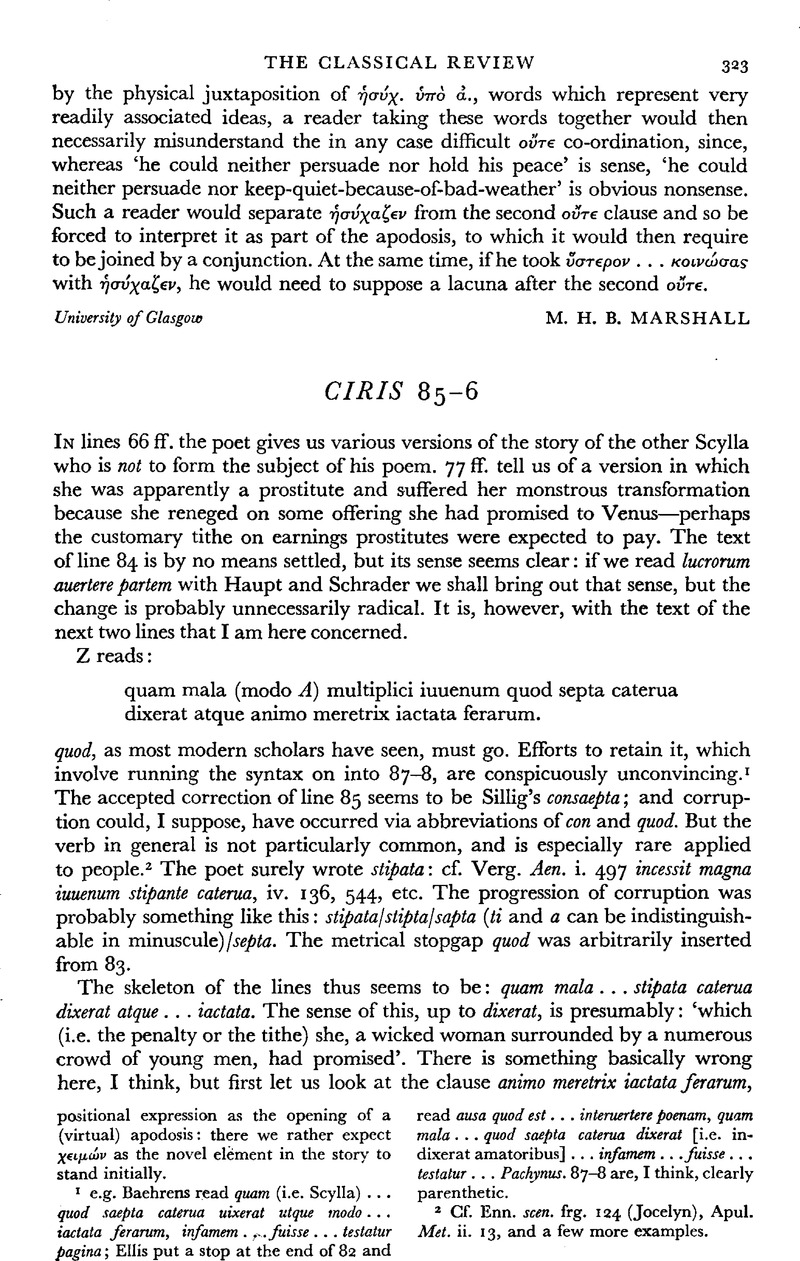No CrossRef data available.
Published online by Cambridge University Press: 27 February 2009

page 323 note 1 e.g. Baehrens read quam (i.e. Scylla) … quod saepta caterua uixerat utque modo… iactata ferarum, infamem … fuisse … testatur pagina; Ellis put a stop at the end of 82 and read ausa quod est … interuertere poenam, quam mala … quod saepta caterua dixerat [i.e. indixerat amatoribus] … infamem … fuisse … testatur … Pachynus. 87–8 are, I think, clearly parenthetic.
page 323 note 2 Cf. Enn, . scen. frg. 124 (Jocelyn)Google Scholar, Apul, . Met. ii. 13, and a few more examples.Google Scholar
page 324 note 1 Scaliger's suggestion that the phrase can mean θηριωδ⋯ς ⋯κμανεῖσα is not justified; while Vollmer's supposition that the poet meant ‘diffamata’ by iactata still does not make the phrase as a whole yield acceptable sense.
page 324 note 2 One can only speculate as to the exact content of the lacuna, but the run of the sense from 83 may have been something like this: ‘because she dared withhold from Venus the tithe she owed for years on end during that abominable life which …’
page 324 note 3 The correction of course is minimal. We can note too that ducere is probably to be read for dicere at 118.
page 324 note 4 et mores is here included for convenience' sake.